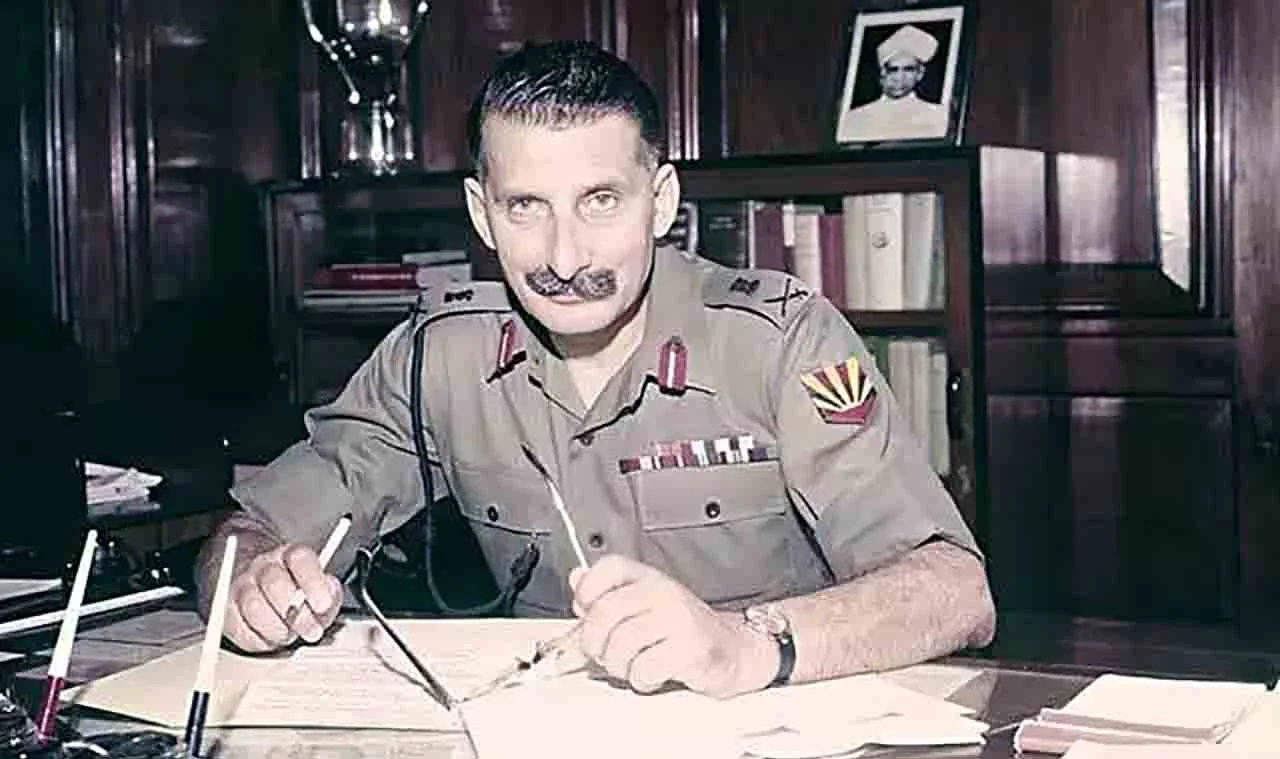
A Parsi boy, Sam Manekshaw, was born in Amritsar, Punjab. His father, Hormizd Manekshaw, was a successful doctor, and his mother, Hilla, née Mehta, was a social worker. Both of his parents were Parsis who moved to Amritsar from the city of Valsad in the coastal Gujarat region.
Manekshaw’s parents had left Mumbai in 1903 for Lahore, where Hormizd had friends and where he was to begin practicing medicine. However, by the time their train halted at Amritsar, Hilla found it impossible to travel any further due to her advanced pregnancy. The couple had to pause their journey to pursue help from the station master, who advised that in her condition, Hilla should not attempt any journey. By the time Hilla recovered from the delivery, the couple had found Amritsar a decent place to settle. Hormusji soon ventured into a clinic and pharmacy in Amritsar. The couple had six children over the following decade, numbering four sons and two daughters (Fali, Cilla, Jan, Sheru, Sam, and Jami). Sam was their fifth child and third son. Sam’s parents were rich and reputed people from Punjab. They gave the best education to their children.
As a boy, Manekshaw was naughty and hyperactive. His early ambition was to study medicine and become a doctor like his father. He completed his primary schooling in Punjab and then went to Sherwood College, Nainital. In 1929, he left the college at the age of 15 with his Junior Cambridge Certificate, and in 1931, he passed his Senior Cambridge with distinction. Manekshaw then asked his father to send him to London to study medicine, but his father refused on the grounds that he was not old enough; in addition, he was already supporting the studies of Manekshaw’s two elder brothers, both of whom were studying engineering in London. Instead, Manekshaw entered the Hindu Sabha College and, in April 1932, appeared for his final exams, passing with a third division in science.
In the meantime, the Indian Military College Committee, which was set up in 1931 and chaired by Field Marshal Sir Philip Chetwode, recommended the establishment of a military academy in India to train Indians for officer commissions in the army. A three-year course was proposed, with an entry age of 18 to 20 years. Candidates would be selected on the basis of an examination conducted by the Public Service Commission. On October 1, 1932, Manekshaw was one of the fifteen cadets to be selected through an open competition. Manekshaw placed sixth in the order of merit. Manekshaw was selected as part of the first batch of cadets. Called “The Pioneers”, his class also produced Smith Dun and Muhammad Musa Khan, future commanders-in-chief of Burma and Pakistan, respectively. Although the academy was inaugurated by Chetwode on December 10, 1932, the cadets’ military training commenced on October 1, 1932.
At the time of Manekshaw’s commissioning, it was standard practice for newly commissioned Indian officers to be initially attached to a British regiment before being sent to an Indian unit. Thus, Manekshaw joined the 2nd Battalion, Royal Scots, stationed at Lahore. He was later posted to the 4th Battalion, 12th Frontier Force Regiment, stationed in Burma. On May 1, 1938, he was appointed quartermaster of his company. During the Second World War, Hormusji Manekshaw served in the British Indian Army as a captain in the Indian Medical Service. Of the Manekshaw siblings, Sam’s two elder brothers, Fali and Jan, qualified as engineers, while Cilla and Sheru became teachers. Both Sam and his younger brother Jami served in the Indian Armed Forces, with Jami becoming a doctor like his father and serving in the Royal Indian Air Force as a medical officer. As the first Indian to be awarded the air surgeon’s wings from the Naval Air Station Pensacola in the United States, Jami joined his elder brother in becoming a flag officer and retired as an air vice marshal in the Indian Air Force.
After the war, Prime Minister Gandhi decided to promote Manekshaw to the rank of field marshal and appoint him as the Chief of the Defence Staff (CDS). However, after several objections from the commanders of the navy and the air force, the appointment was dropped. It was felt that, because Manekshaw was from the army, the comparatively smaller forces of the navy and air force would be neglected. Moreover, bureaucrats felt that it might challenge their influence over defense issues. Though Manekshaw was to retire in June 1972, his term was extended by a period of six months, and “in recognition of outstanding services to the Armed Forces and the nation,” he was promoted to the rank of field marshal on January 1, 1973. The first Indian Army officer to be so promoted, he was formally conferred with the rank in a ceremony held at Rashtrapati Bhavan on January 3.
Manekshaw died of complications from pneumonia at the Military Hospital in Wellington, Tamil Nadu, in 2008 at the age of 94. He was buried in the Parsi cemetery in Ootacamund (Ooty), Tamil Nadu, with military honors, adjacent to his wife’s grave. Owing to the controversies in which Manekshaw was involved post-retirement, it was reported that his funeral lacked VIP representation and no national day of mourning was declared, which, while not a breach of protocol, was not customary for a leader of national importance. He was survived by his two daughters and three grandchildren. After 16 years of his death, a film is made on him and his bravery that brings back the glorious period of his brave acts as a brave defense person for our nation.

